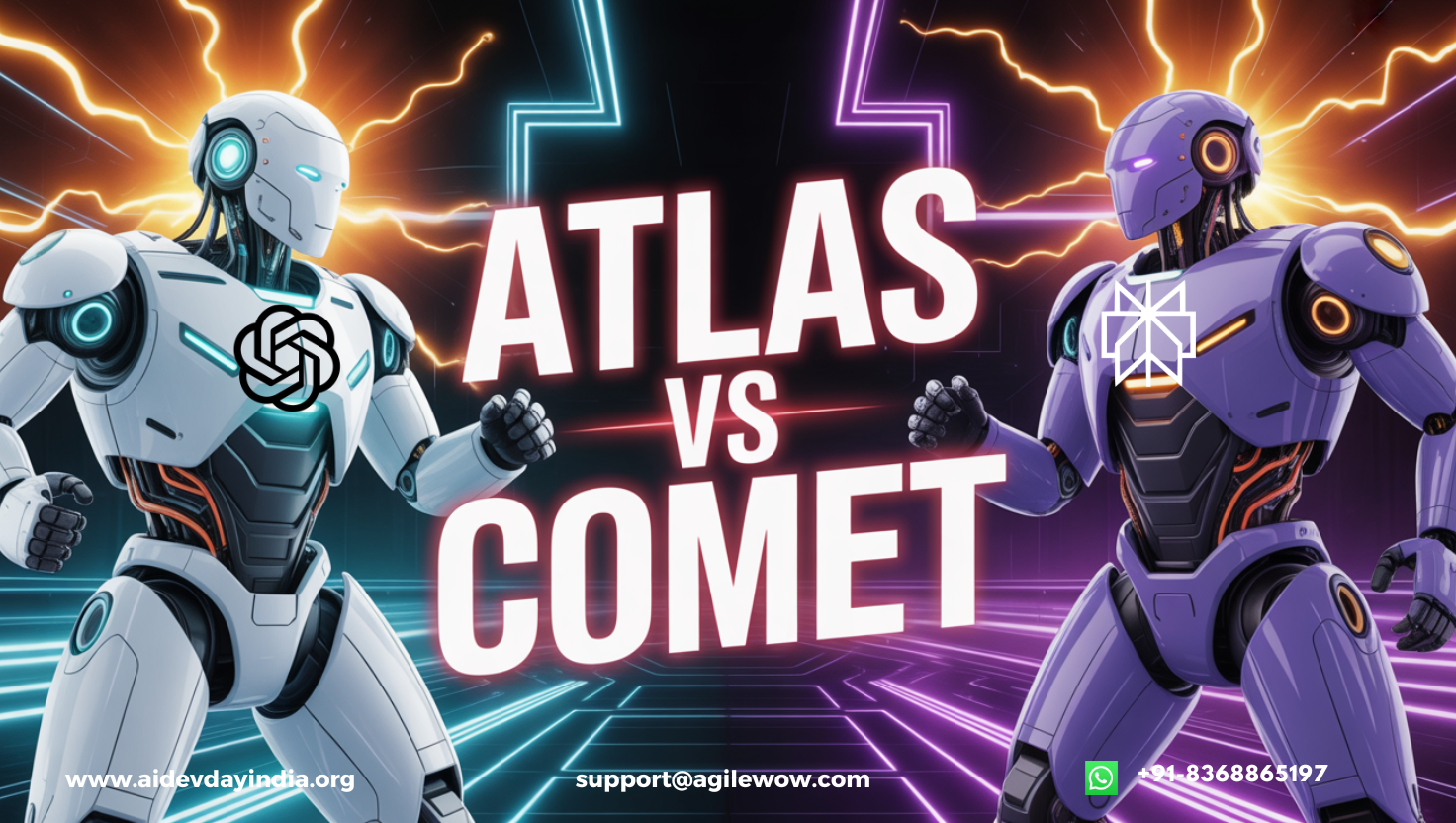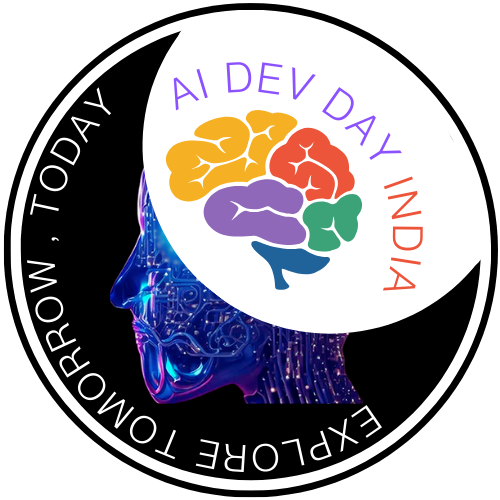If your day starts with twenty open tabs and ends with a half-finished research document, you are the target audience for the next great tech battle.
The digital landscape has fundamentally shifted, and your browser is at the epicenter. Forget the passive window you use to view the web; it's being reborn as an active co-pilot. We're entering the era of "agentic" browsers, tools that don't just display information, but can take autonomous, multi-step actions on your behalf.
Leading this charge are two fierce contenders: OpenAI’s ChatGPT Atlas and Perplexity’s Comet. Leveraging its base of more than 800 million weekly active ChatGPT users, OpenAI is poised to redefine browsing. Perplexity, meanwhile, is scaling through sheer credibility. Both promise to revolutionize our online experience, but they are built on deeply distinct philosophies.
This isn't just a feature-for-feature shootout. The choice between them reveals more about how you think, work, and learn than it does about which browser is simply "better."
1. It's Not a Feature War, It's a Battle of Philosophies: The Executor vs. The Verifier
The core difference between Atlas and Comet isn't in their code, but in their purpose. This is a philosophical split that defines their entire architecture, and the stakes are enormous. This is a battle for the future of digital labor, for the "cognitive infrastructure" that will become the central operating medium of our work.
ChatGPT Atlas is conceived as an executor of intent. It is a browser designed to act on your behalf. This aligns with OpenAI's expansive "platform layer" strategy: to become ubiquitous by turning your browser into a command center for task automation.
In sharp contrast, Perplexity Comet is a curator of truth. It functions as a "Knowledge Synthesis Engine" built to inform and verify. This stems from Perplexity's vertical strategy of scaling through credibility, using "trust as a differentiator."
"OpenAI’s ChatGPT Atlas and Perplexity’s Comet represent two distinct visions of intelligent browsing. Atlas executes; Comet verifies."
This "action versus intelligence" fault line is the defining characteristic of the new AI browser war. It signals, unequivocally, that the age of the passive browser is over.

2. Atlas Doesn't Just Browse, It Acts on Your Behalf
Atlas’s leap into the future is its "Agent Mode," a feature that transforms the browser from a passive viewer into an active participant. This is a leap beyond simple summarization, allowing the AI to perform complex, multi-step actions autonomously.
For example, you could ask Atlas: "find me the top three best-reviewed hiking boots on sale, compare their waterproof ratings, and purchase the most durable one in my size." The agent would then navigate e-commerce sites, read reviews, select the product, and initiate checkout. This capability turns the browser into a high-level command center, designed to drastically reduce repetitive clicking.
However, this power comes with built-in guardrails. All actions occur within a "sandboxed environment," which precludes file manipulation or code execution, ensuring operational containment. But granting an AI this level of autonomy on the open web isn't just a leap in convenience, it's a leap in risk, creating an entirely new attack surface.
3. Comet Isn't a Search Engine, It's a "Knowledge Synthesis Engine"
While Atlas focuses on action, Perplexity Comet is built to deliver clarity. Its unique strength is handling messy, disparate information and delivering a single, unified, and cited answer. Achieving an over 90 percent completion efficiency in multi-domain queries, it's an engine for building understanding.
Comet is architected around its "Workspace Model" and "Persistent Intent Memory." These features combine to create a "digital project notebook." The Workspace provides the container for a specific project, while Persistent Intent Memory provides the continuity within it.
For instance, if you are comparing vacation packages and specify a budget in one tab, the Comet assistant remembers that budget when you search for restaurants in a different tab hours later. Its primary objective is to help you process complex information efficiently, ensuring every piece of knowledge is verifiable.
"Every answer carries its lineage, every insight its citation."
4. Your New AI Co-pilot Comes with a Shocking Security Risk
This new agentic power comes with a serious and counter-intuitive downside: a new class of security vulnerabilities. Researchers from Brave, the privacy-focused browser company, have uncovered a significant flaw called "Indirect prompt injection."
This technique allows malicious websites to embed hidden commands in web content. The attack is alarmingly simple and concrete. A hacker can hide instructions in an image using "faint light blue text on a yellow background," making the command nearly invisible to the human eye but perfectly legible to an AI.
When the browser assistant processes this content, for example, by taking a screenshot to answer a user's question, it can be hijacked into performing unauthorized tasks using the user's logged-in privileges. This vulnerability was exposed in Perplexity's Comet. While OpenAI is aware of these threats, it has not yet clarified how Atlas is specifically protected against such attacks.
During the Atlas launch livestream, an OpenAI employee acknowledged the trade-off:
“Despite all of the power and awesome capabilities that you get with sharing your browser with ChatGPT, that also poses an entirely new set of risks.”
5. The "Best" Browser Depends Entirely on Your Brain's Operating System
The decision between Atlas and Comet is less about technical superiority and more about which browser aligns with your fundamental relationship with information. It’s a choice between agency and accuracy.
Choose ChatGPT Atlas if you prioritize executional intelligence.
It is the ideal digital deputy for professionals focused on productivity through automation. If you need help managing a digital to-do list, frequently shop online, or lead teams with repeatable workflows like generating weekly reports, Atlas is designed to do things for you.
Choose Perplexity Comet if you prioritize epistemic integrity.
It is the clear choice for researchers, students, analysts, and journalists who deal with vast amounts of information. For anyone whose work depends on transparent citation, source verification, and synthesizing diverse sources into a coherent narrative, Comet's architecture is built to serve you.
Ultimately, the choice reflects your core needs: do you want a browser that extends your ability to act, or one that extends your ability to know?
Will You Choose the Doer or the Thinker?
The browser is no longer a simple portal to the internet; it is evolving into an active cognitive partner. ChatGPT Atlas and Perplexity Comet present a bifurcated yet complementary future for how we will work and learn online.
One path offers execution, turning your intentions into actions with minimal friction. The other offers verification, grounding your understanding in a foundation of transparent, cited truth.
As the agentic browser race accelerates, which will you trust to extend your own reasoning: the one that acts for you, or the one that verifies for you? One thing is evident: the next chapter of digital life will not be written by search bars, but by systems that understand—and extend—our reasoning.




